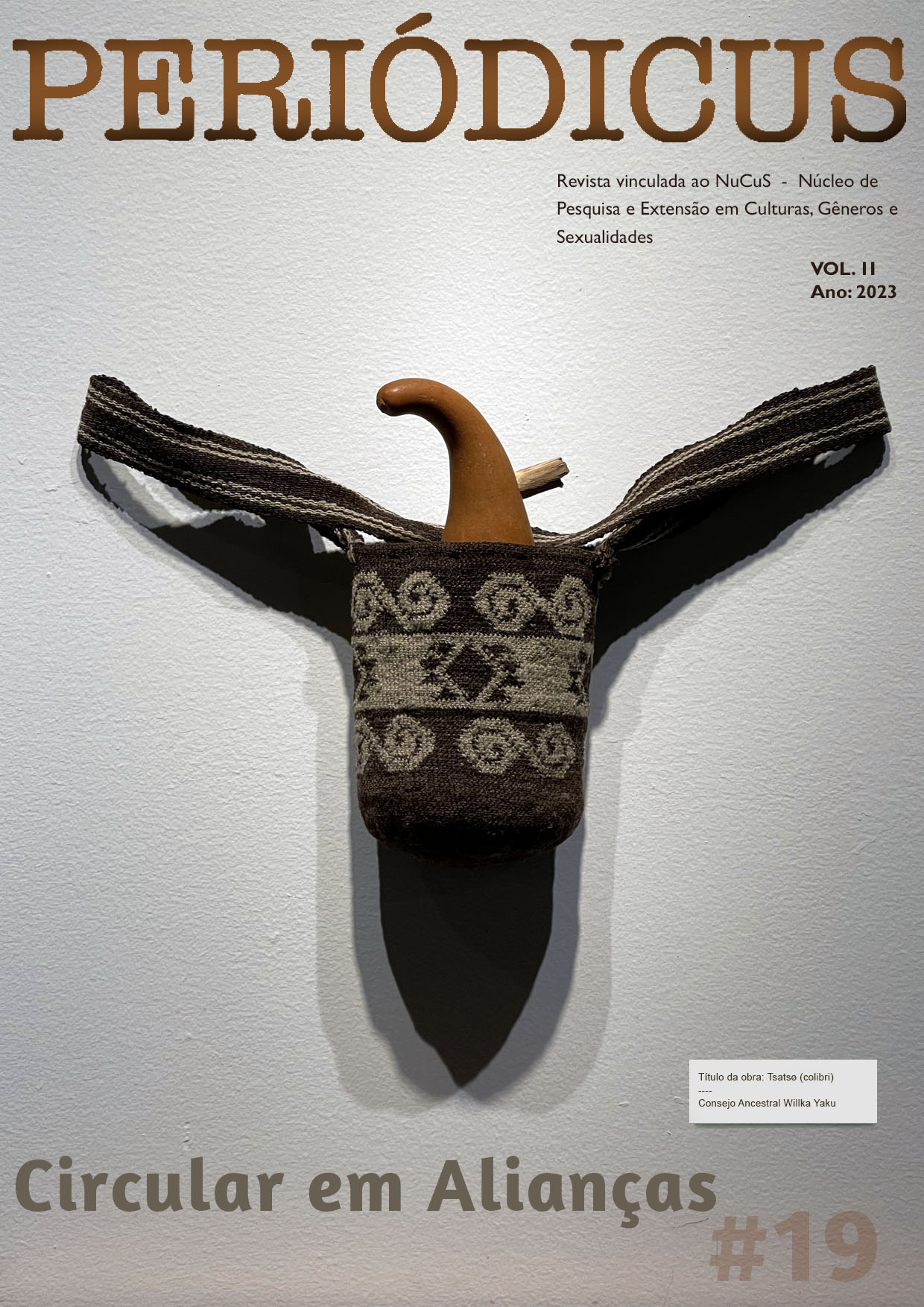E “o cu que é democrático e todo mundo tem”
homossexualidade molecular por toda parte
DOI:
https://doi.org/10.9771/peri.v2i19.55187Resumo
O presente ensaio enseja fazer reflexões acerca da conceituação da “homossexualidade molecular” originada por Gilles Deleuze e Félix Guattari em O Anti-Édipo: capitalismo e esquizofrenia e encaminhada por Guy Hocquenghem e René Schérer em suas obras, buscando estabelecer diálogos nos quais se apresenta o funcionamento da relação homossexual na produção de prazeres e diferenças que contestam a normatividade, bem como também toda operação capturante dessas relações. Para isso, seguimos dissertando sobre a homossexualidade molecular na obra deleuze-guattariana, apontando os modos de operação das relações edipianas e as criticas feita a psicanálise, para então olharmos para as relações homossexuais e como ela se produz identitária, mas também como funciona molecularmente. Por fim, em um dialogo com o filme Tatuagem, apresentamos as potências afirmativas da homossexualidade molecular.
Downloads
Downloads
Publicado
Como Citar
Edição
Seção
Licença
Copyright (c) 2023 Antonio Leonardo Figueiredo Calou

Este trabalho está licenciado sob uma licença Creative Commons Attribution-NonCommercial 4.0 International License.
Autores que publicam nesta revista concordam com os seguintes termos:
Autores mantêm os direitos autorais e concedem à revista o direito de primeira publicação, com o trabalho simultaneamente licenciado sob Licença Creative Commons Attribution Noncommercial que permite o compartilhamento do trabalho com reconhecimento da autoria e publicação inicial nesta revista, sendo vedado o uso com fins comerciais.
Autores têm autorização para assumir contratos adicionais separadamente, para distribuição não-exclusiva da versão do trabalho publicada nesta revista (ex.: publicar em repositório institucional ou como capítulo de livro), com reconhecimento de autoria e publicação inicial nesta revista.
Autores têm permissão e são estimulados a publicar e distribuir seu trabalho online (ex.: em repositórios institucionais ou na sua página pessoal) a qualquer ponto antes ou durante o processo editorial, já que isso pode gerar alterações produtivas, bem como aumentar o impacto e a citação do trabalho publicado (Veja O Efeito do Acesso Livre).








